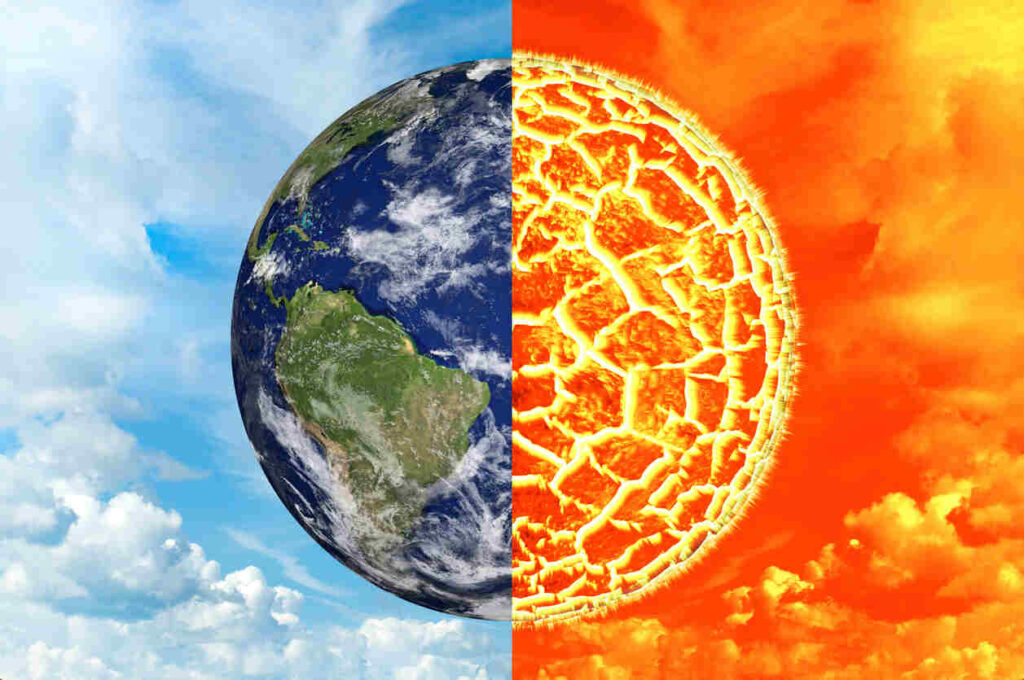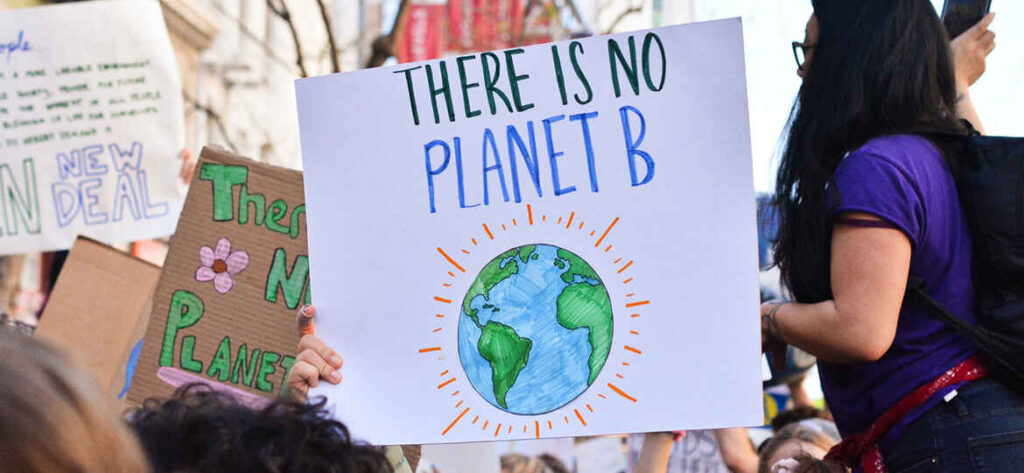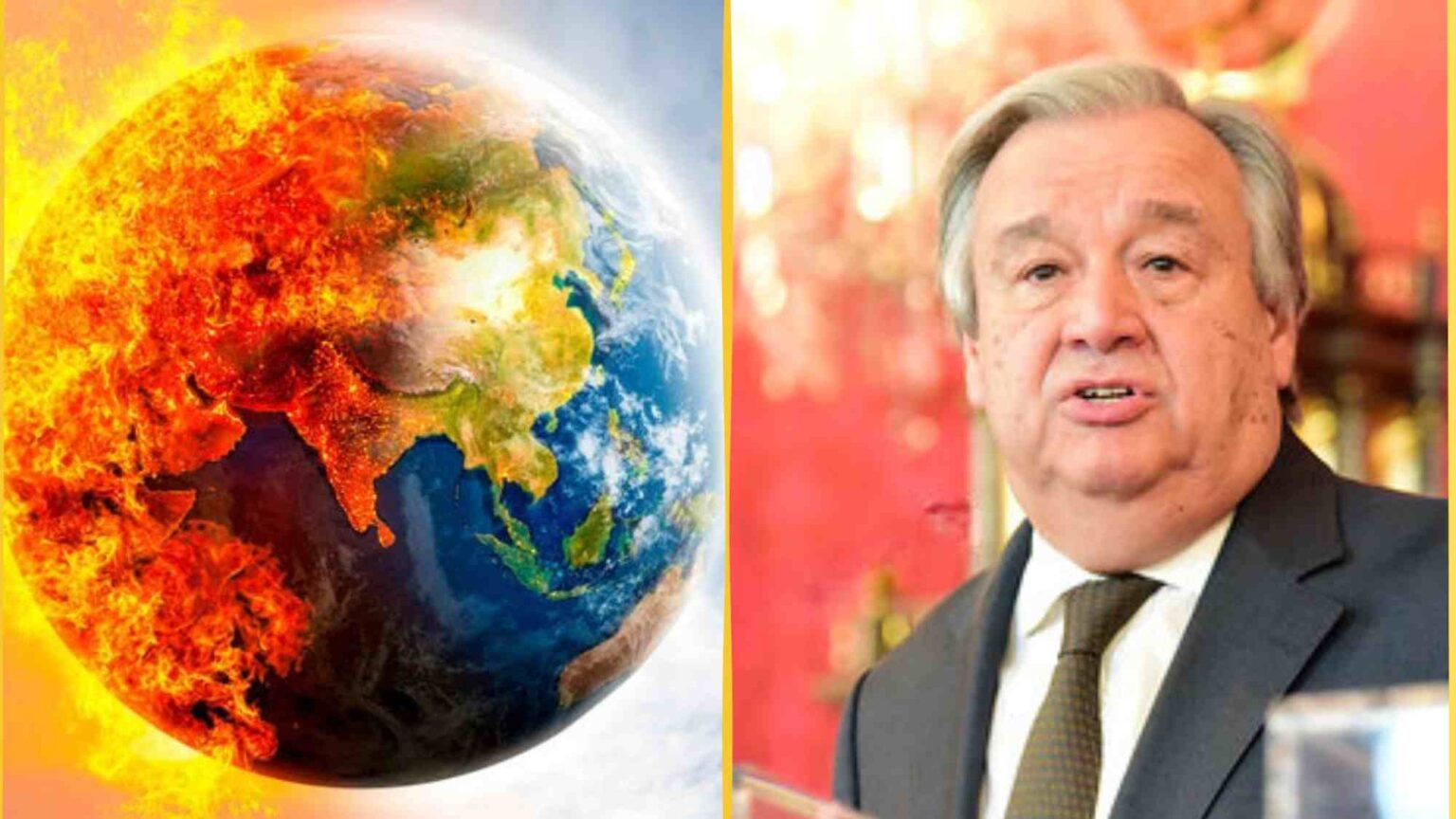The UN secretary-general António Guterres has warned that the world has entered an era of “global boiling” as July 2023 was the hottest month ever recorded.
Global boiling is a term coined by Guterres to describe the extreme heat that is affecting many parts of the world, especially in the northern hemisphere. According to the World Meteorological Organization, July 2023 was the warmest month on record, surpassing the previous record set in July 2019.
The main cause of global boiling is the accumulation of greenhouse gases in the atmosphere, such as carbon dioxide, methane, and nitrous oxide. These gases trap heat and warm up the planet, leading to more frequent and intense heat waves, droughts, wildfires, floods, storms, and sea level rise.
The UN report warned that global boiling is not only a threat to human health and well-being, but also to biodiversity, food security, water resources, and economic development. It also warned that global boiling could trigger irreversible tipping points, such as the collapse of ice sheets, the release of methane from permafrost, and the dieback of forests.

Guterres has urged for radical action to reduce greenhouse gas emissions and adapt to the impacts of climate change. In the report he has stressed on an urgent and ambitious action to limit global warming to 1.5°C above pre-industrial levels, as agreed in the Paris Agreement.
This means that global greenhouse gas emissions need to be halved by 2030 and reach net zero by 2050.
Here are some statistics that illustrate the severity and urgency of a climate crisis:
- In 2021, the combined heating influence of all human-produced greenhouse gases was 49 percent higher than it was in 1990
- In 2022, Europe experienced its hottest year on record, with an average temperature of 2.7°C above pre-industrial levels. Climate change is taking a major human, economic and environmental toll in Europe, the fastest warming continent of the world.
- The year 2022 was marked by extreme heat, drought and wildfires. Sea surface temperatures around Europe reached new highs, accompanied by marine heatwaves. Glacier melt was unprecedented
- In June 2023, a record-breaking heat wave hit North America, with temperatures reaching up to 49.6°C in Canada and 46.1°C in the US. Hundreds of people died from heat-related causes, and millions of hectares of forests burned down
- In July 2023, China suffered from devastating floods that killed more than 300 people and displaced millions more. The floods were caused by extreme rainfall that exceeded the average by 40%
- In August 2023, Madagascar declared a famine in its southern region due to severe drought that affected more than one million people. The drought was linked to climate change that reduced rainfall and increased evaporation
How can we stop global boiling?

To achieve this goal, we need to transform our energy systems, transport systems, land use patterns, and consumption habits. We need to invest in renewable energy sources, such as solar, wind, and hydro power. We need to promote low-carbon mobility options, such as public transport, cycling, and electric vehicles. We need to protect and restore natural ecosystems, such as forests, wetlands, and oceans. We need to adopt more sustainable lifestyles, such as eating less meat, wasting less food, and recycling more.
We also need to adapt to the impacts of climate change that are already happening or unavoidable. We need to build resilience in our communities, infrastructure, and institutions. We need to support vulnerable people and countries that are most affected by climate change. We need to enhance cooperation and solidarity among nations and regions.
How can you calculate your Carbon Footprints ?
Your carbon footprint is the amount of greenhouse gases that you emit directly or indirectly through your activities, such as energy use, travel, and waste. To calculate your carbon footprint, you need to measure or estimate your emissions from different sources and convert them to tons of CO2 equivalent per year.
One way to do this is to use an online calculator that can help you input your data and apply the appropriate emission factors. For example, you can try this calculator from Carbon Footprint Ltd.
How can you get involved in the fight against global boiling?

You may think that global boiling is too big of a problem for you to make a difference. But you are wrong. Every action counts. Every voice matters. Here are some ways you can get involved in the fight against global boiling:
- Educate yourself and others about climate change and its solutions. Read reliable sources of information, such as this article or this blog. Share what you learn with your family, friends, colleagues, and social media followers.
- Take action in your daily life to reduce your carbon footprint. Use energy-efficient appliances and lighting. Turn off or unplug devices when not in use. Use public transport or bike instead of driving. Buy local and organic food. Avoid single-use plastics. Compost your organic waste.
- You can Join or support a climate movement or organization that advocates for climate justice and action. There are many groups that you can join or donate to, such as Fridays for Future, 350.org, Greenpeace, or WWF. You can also participate in climate strikes, marches, petitions, or campaigns.
- You can demand action from your government and business leaders. Write letters or emails to your elected representatives or candidates. Call or visit their offices. Sign petitions or join lawsuits. Vote for politicians who support climate action.
- Boycott or divest from companies that contribute to climate crisis or violate human rights.
Be hopeful and optimistic about the future. All we have to do is make it happen.









